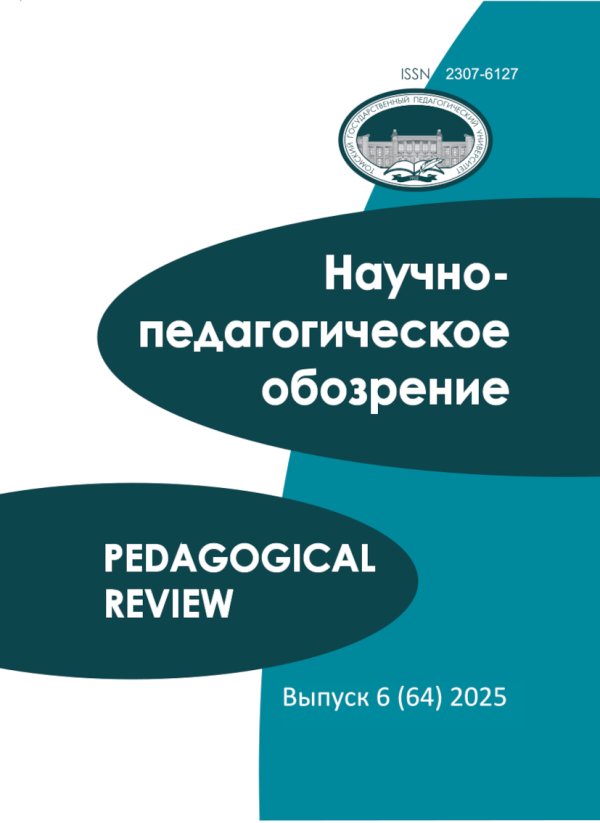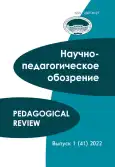ВНЕДРЕНИЕ КОГНИТИВНОЙ ТРЕНИРОВКИ В ПРОЦЕСС ОБУЧЕНИЯ МАТЕМАТИКЕ
- Авторы: Пигарев А.Ю.1
-
Учреждения:
- Новосибирский государственный университет экономики и управления
- Выпуск: № 1 (2022)
- Страницы: 36-43
- Раздел: ВОСПИТАТЕЛЬНАЯ РАБОТА
- URL: https://bakhtiniada.ru/2307-6127/article/view/269104
- DOI: https://doi.org/10.23951/2307-6127-2022-1-36-43
- ID: 269104
Цитировать
Полный текст
Аннотация
Недостаток рабочей памяти приводит к устойчивой неспособности к изучению математики. Рабочая память поддается тренировке, однако улучшение когнитивных функций не обеспечивает автоматического трансфера в академическую успеваемость по причине глубокого отставания таких учеников от программы.Предлагается проводить тренировку рабочей памяти в контексте математических знаний. Автор создал систему компьютерных тренажеров рабочей памяти на основе ключевых разделов школьной программы по математике. Встраивание когнитивной тренировки в учебный контент снимает проблему «дальнего переноса», поскольку положительный эффект на академическую успеваемость проявляется сразу.Анализ статистических данных на сервере подтверждает значительные индивидуальные различия в рабочей памяти, а также гипотезу о том, что в результате тренировок улучшается стратегия использования ресурсов рабочей памяти, а не объем ее кратковременных хранилищ.
Ключевые слова
Об авторах
Александр Юрьевич Пигарев
Новосибирский государственный университет экономики и управления
Email: physflash@yandex.ru
кандидат педагогических наук, доцент ул. Каменская, 56, Новосибирск, Россия, 630099
Список литературы
- Lynn S. Fuchs, Douglas Fuchs, Amelia S. Malone, Pamela M. Seethaler, Caitlin Craddock, Chapter 12 – The Role of Cognitive Processes in Treating Mathematics Learning Difficulties // Mathematical Cognition and Learning, Cognitive Foundations for Improving Mathematical Learning. 2019. Vol. 5. P. 295–320.
- Deary I. J., Strand S., Smith P., Fernandes C. Intelligence and educational achievement // Intelligence. 2007. № 35. Р. 13–21.
- Baddeley A. Working memory: Looking back and looking forward // Nature Reviews. 2003. Vol. 4. Р. 829–839. doi: 10.1038/nrn1201
- Alloway T. P., Passolunghi M. C. The relationship between working memory, IQ and mathematical skills in children // Learning and Individual Differences. 2011. Vol. 21 (1). Р. 133–137. doi: 10.1016/j.lindif.2010.09.013
- Jaeggi S. M., Buschkuehl M., Jonides J., Perrig W. J. Improving fluid intelligence with training on working memory // PNAS. 2008. Vol. 105, № 19. Р. 6829–6833. doi: 10.1073/pnas.0801268105
- Kearns D. M., Fuchs D. Does cognitive-focused instruction improve the academic performance on low-achieving children? // Exceptional Children. 2013. № 79. Р. 263–290.
- Fuchs L. S., Schumacher R. F., Sterba S. K., Long J., Namkung J., Malone A., Hamlett C. L., Jordan N. C., Gersten R., Siegler R. S., Changas P. Does working memory moderate the effects of fraction intervention? An aptitude–treatment interaction // Journal of Educational Psychology. 2014. № 106 (2). Р. 499–514.
- Pashler H., Rohrer D., Cepeda N. J., Carpenter S. K. Enhancing learning and retarding forgetting: Choices and consequences // Psychonomic Bulletin & Review. 2007. № 14 (2). P. 187–193.
- Shing Y. L., Schmiedek F., Lövdén M., Lindenberger U. Training Working Memory for 100 Days The COGITO Study // Cognitive and working memory training: Perspectives from psychology, neuroscience, and human development / eds. by J. M. Novick, M. F. Bunting, M. R. Dougherty, R. W. Engle. Oxford University Press, 2019. Р. 40–57.
- Hicks K., Engle R. W. Cognitive Perspectives of Working Memory Training Current Challenges in Working Memory Training // Cognitive and working memory training: Perspectives from psychology, neuroscience, and human development / eds. by J. M. Novick, M. F. Bunting, M. R. Dougherty, R. W. Engle. Oxford University Press, 2019. Р. 3–13.
- Shipstead Z., Redick T. S., Engle R. W. Is working memory training effective? // Psychological Bulletin. 2012. № 138 (4). Р. 628–654. doi: 10.1037/a0027473
Дополнительные файлы







